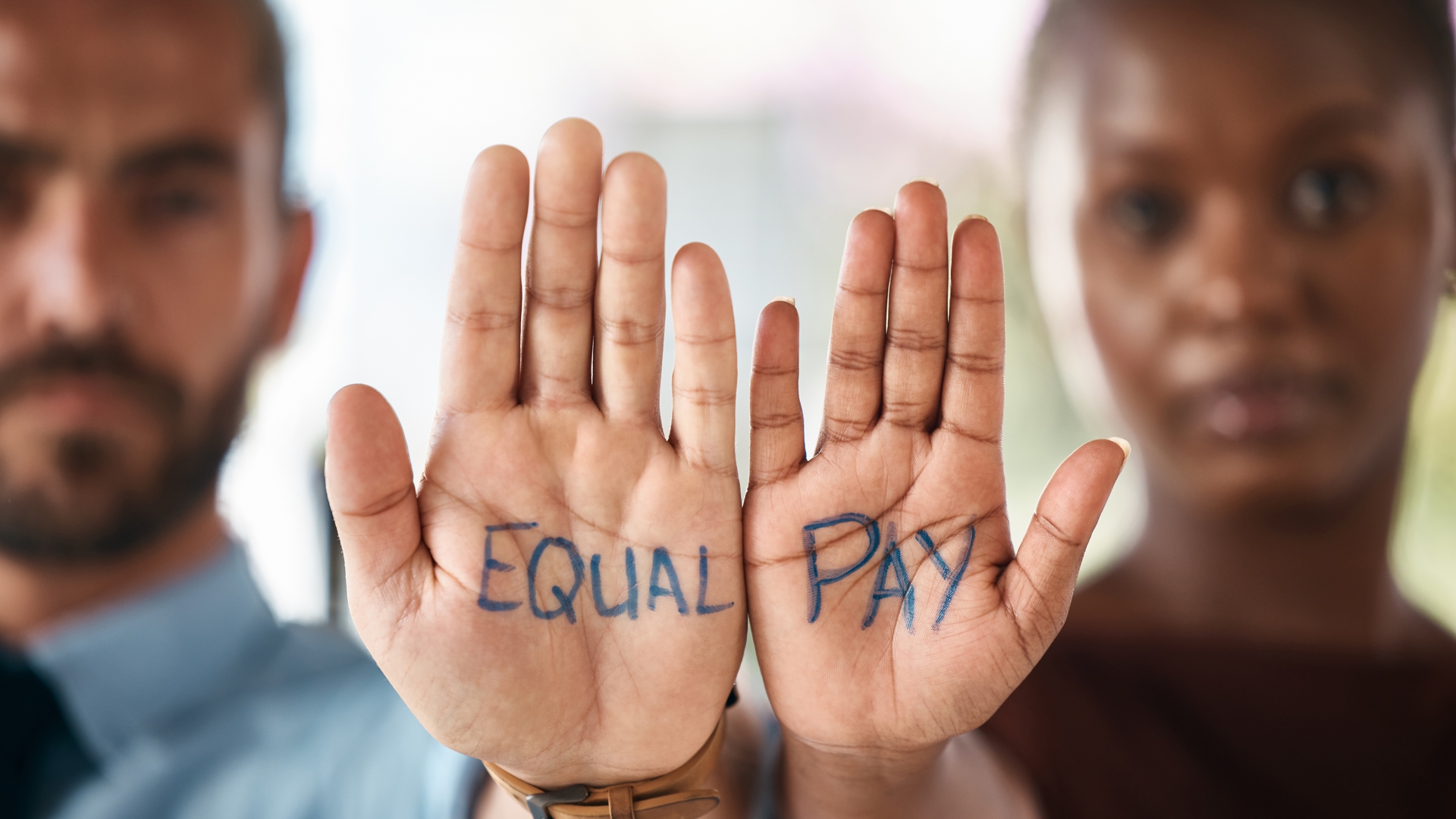
The FNV has published the book 'Women deserve better: the real stories behind the wage gap'. This is not only about the hard numbers, but also about the stories behind them. What is the most striking or common thread from this?
"What really struck me is that the stories came from all sectors, not just from industries where mainly men work. There were also stories from childcare. For example, there was a team that consisted of ladies. A man was hired and he received a higher wage, while he had less experience." Smit also finds it striking that she still comes across stories that you would no longer expect in 2025. "When women want to discuss their wages and earn more, they sometimes get comments like 'You have children, don't you', 'Your husband earns enough' or 'Are you mainly doing it for the money or something?'. You can still hear that. Also in 2025. That's unbelievable."
Impotence. That's how she describes the feeling of these folds. "It's good that legislation is coming, because as a woman you can't do much about this individually. It is often said that women do not negotiate, but as far as we are concerned, that is not the main cause. This is mainly due to the fact that in the Netherlands there is an unconscious idea that the work of women is worth less than the work done by men. When a woman applies for a job, it is often stated that they must first show 'what she is worth' and only then can they possibly receive a higher salary. With a man, it is regularly said that he has 'so much potential' and he receives a high salary because the employer thinks he can do it. This difference ensures that the wage gap is still 10.5 percent per hour."
"'You have children, don't you', 'Your husband earns enough' or 'Do you do it mainly for the money or something?'. You can still hear that. Also in 2025. That's unbelievable."

The webinar shows that it is essential that there is more transparency about salaries. In what way would FNV prefer to see that reflected?
"This law is really a step in the right direction. Countries where this law has been implemented prove that. For example, this was done at the municipality of Reykjavik and the wage gap has fallen to 0 percent. The law gives women the support to address a possible pay gap and get what they deserve." Smit indicates that the FNV is concerned about victimisation. Women are punished after they have indicated that they want to earn more, for example by being reduced in hours. The latter should also be better regulated in the law, she believes.
In September, the FNV will publish a report on the salary taboo. "In Sweden, you can look up what your neighbour earns and what his house is worth. We hope that this law will lead to a culture change in which there will be more transparency. Employers and men also have no interest in salaries remaining 'secret'. It is not the case that if it turns out that men earn too much, they will be set back in terms of salary. So they don't have to be afraid."
The reporting obligation applies to companies with more than 100 FTEs. This is not the case with smaller companies. So what can you do as a female employee?
"Join the union. We have too many women trying to solve this as an individual problem. That hardly works. You have to tackle it as a collective problem. Seek support from other colleagues, especially male colleagues. Don't do this on your own. With smaller companies, it is so important that you can come to us for help. Try to gather enough information and prepare yourself very well for the interview, because it is hard negotiation. Also recognise for yourself that the problem lies in the fact that you are a woman and that it is not due to a lack of experience or lesser performance."
"The law gives women the support to address a possible pay gap and get what they deserve."
Smit advises employees of insurers to take a critical look at the pay gap study. "A study has already been carried out for a number of them and sometimes surprising percentages came out with, for example, pay gaps of only 2 percent. This may be due to the research method. I would like to warn employees about this. Ask critical questions and make sure you can see the methods. Pay gap research is also technical and complicated, but be wary of tricks. If you don't trust it, go to the union leader. He or she can ask the critical questions as he or she should. Of course there are companies with a pay gap of 2 percent, but I find it unbelievable that most studies now show a gap between 1 and 5 percent, that can't be right."

What else is the FNV going to do in the run-up to the law?
"There are a number of things that are very important. First of all, it is making employees aware of the fact that the law is coming and ensuring that it is as good as possible. For example, it should become clear what employers' reports on wages should look like. The works council also needs to be trained, because it will have quite a major role in the new law. We also want employees to realise that employers sometimes come up with ways to circumvent the law. For example, they can create different categories of employees, for example, "mechanic A" and "mechanic B" to make up for the difference in salary. They may also complain that it is a lot of work, but that is nonsense. Companies often know exactly who earns what. There will certainly be hassle for employers, but the pain here is mainly in the fact that there is no equal reward. In short, I do expect that this will cause a stir."
According to Smit, the (re)design of job classification systems will cause hassle, but will ultimately benefit the employees. "It stimulates clarity about job packages and the corresponding salary. I advise employers to arrange it first at the front end, then scale positions and then report. Not the other way around."
How do you see the future?
"A very nice step has been made. We have gone from a pay gap of 13 percent to 10.5 percent. In that respect, I am hopeful that we will close the pay gap soon. So I hope that we can soon celebrate Equal Pay Day on December 31. What we as FNV also want to tackle is the gap in unpaid work, such as taking care of children and housekeeping. As a result, women are paid 36 percent less per year than men. This is mainly because women work much more part-time. This leads to fewer career opportunities and fewer training opportunities."
Ilze Smit is a project leader at the FNV and is specifically responsible for women's rights. She is committed to closing the pay gap and more gender equality in the workplace. Smit is also part of the Wage Transparency Legislation working group where she discusses the new bill with other social partners. Finally, she is working with union officials to ensure that the new law lands well in the workplace.
The Dutch Association of Insurers will pay more attention to equal pay in the coming period. For example, watch the webinar Equal pay between men and women. What about the insurance industry?
These articles were also published earlier:
Equal pay in the financial sector still a big difference
5 questions about equal pay at Allianz
"Equal pay starts with recruitment"
Equal pay: Salary scale, salary and remuneration criteria often shrouded in mystery.